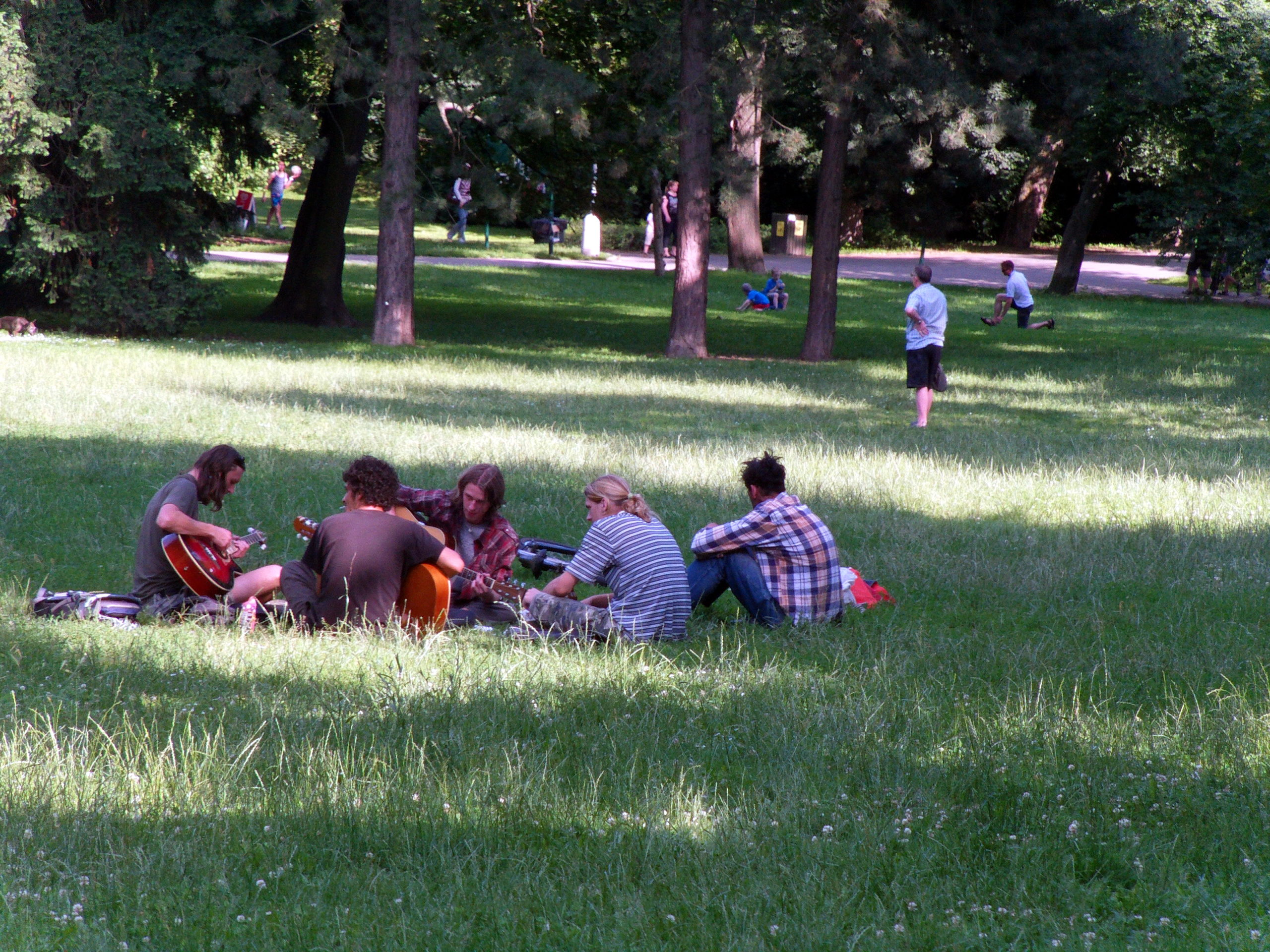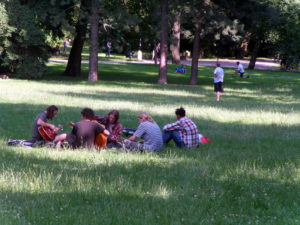The Biggest Revelation of Lockdown

The past three and a half months have taught me loads. Practically I’ve discovered how to edit video and how to continue youthwork relationships online; spiritually I’ve discovered the power of mindfulness and creating 10 minutes of space in my day, I’ve also re-discovered a love of reading; personally I’ve learnt not to raid the biscuit tin too often, and how amazing it is to have lunch together as a family every day.
But in this blog I’m going to share with you my biggest revelation from lockdown. Something which has taken me by surprise, but on reflection seems pretty obvious. Its something which should shift the attitudes and perceptions of youthworkers and perhaps more importantly, parents, for the future. This is a game changer.
Are you ready? Sit down….
The biggest revelation of lockdown is:
Young people don’t spend all day on their phone.
There it is folks. Let that sink in for a moment. Deal with the contradictions running through your mind at the moment. Remember all those conversations you’ve had with parents, other youthworkers, teachers, wise old sages, maybe even young people themselves. Recreate in your mind the newspaper stories and internet news reports. As a parent of 2 young people myself I’ve sat through presentations from pastoral staff at school telling me the signs to look out for.
They are all wrong.
And yet, we knew this really, didn’t we? Its totally logical.
There’s an illustration we use (I bet many of us have used it in an assembly or sermon or talk) about putting the big rocks in first. Here’s a reminder:
[yotuwp type=”videos” id=”cMBM7K_yHog” ]
I think we’ve made an error like this in assessing screen time. We’ve either started by asking the question “how much time do you spend on your phone” or we’ve only assessed the bits we see: Parents see their kids for 4 hours an evening and half that time is on their phone. Maybe we need to properly assess what’s going on.
What do young people do all day?
Well, its mainly go to school, and for the bulk of them its also homework, and a whole bunch of extra-curricular activities like sports clubs, drama groups, and the youth sessions we run for them. Do the math: 7 hours at school; maybe an hour travelling there and back; 2 hours of homework; 2 more at a club; half an hour for breakfast and dinner; anything between 5 and 90 minutes in the shower; 8 hours asleep. That’s a rough calculation, and its makes loads of assumptions, I get that. But it adds up to 21 hours. Do your own version if you want, talk to some young people, get them to do the same (honestly) for themselves. There’s only about 3 hours left for screen time. And the research backs that up:

And what about you & me? How do we stack up?
A recent survey by OnePoll found that the average adult in the UK spends 13 hours and 20 mins across screens (PC, smart devices, consoles, TV). That’s nearly 6 hours more than our kids.
So, what’s the point in sharing all these statistics. What are we learning from this revelation?
Churches are getting excited about the new online connectivity they’re discovering. Numbers at online services appear higher than they were at physical services. Adults are connecting with church virtually, and that is amazing. But its also not unsurprising, because culturally adults were already in an online world, the church is just catching up with that.
 Young People, despite the stereotypes and complaints from parents, were in a different culture. They spend time actually face to face with people. They hang out with their friends all day at school, do clubs and social activities (including church youth clubs) together with their peers. They go to the park, pool, shopping mall, wherever with their friends at the weekend. Sure they post about it on Insta or Snapchat each other when they’re apart, but in general they spend more time in physical social interaction than adults.
Young People, despite the stereotypes and complaints from parents, were in a different culture. They spend time actually face to face with people. They hang out with their friends all day at school, do clubs and social activities (including church youth clubs) together with their peers. They go to the park, pool, shopping mall, wherever with their friends at the weekend. Sure they post about it on Insta or Snapchat each other when they’re apart, but in general they spend more time in physical social interaction than adults.
So we shouldn’t be surprised if the uptake of our online youthwork isn’t as dramatic as the adult-church stuff. We shouldn’t fret that Mavis the flower arranger has more likes on her posts than we do on ours. Its not the young people who’ve been living online – its their parents.
And as lockdown eases – whilst we must always adhere to Government guidelines, lets plan for opportunities to meet up face to face again. Lets encourage young people to get out and socialise again. Allow them to do all the stuff we’ve been missing whilst we’ve been obsessing about their phones.
And, lets break the myth, lets educate ourselves, parents and young people.
We’ve been believing a lie.
They’re not on their phone all day.